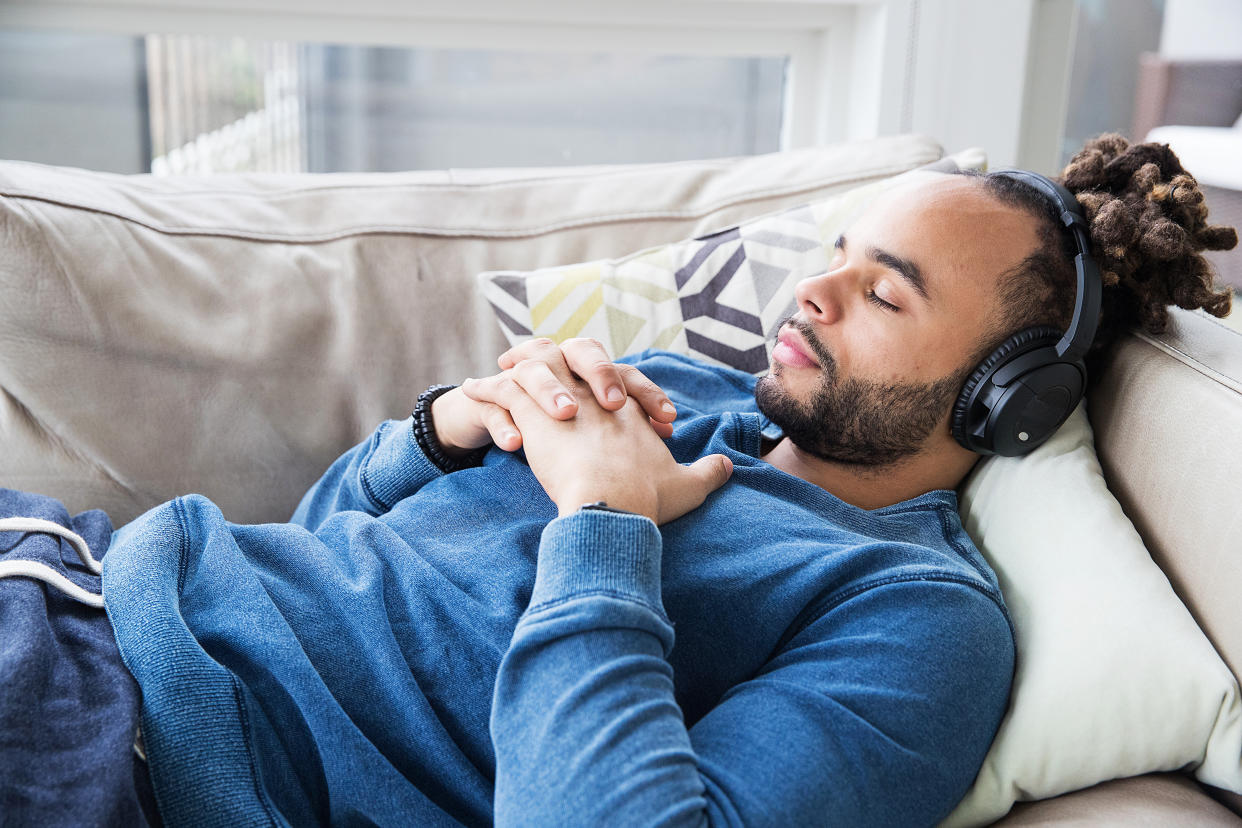Hearing relaxing words while asleep is good for the heart, study says

Don’t sleep on this soothing news — or do?
Relaxing sleep affirmations can have a calming effect on the heart, a new study published in the Journal of Sleep Research has revealed.
Researchers at the University of Liége in Belgium and the University of Fribourg in Switzerland analyzed electrical activity in the heart to understand how bodies react to external stimuli when asleep.

They found that people’s heartbeats change in response to hearing different types of words even while sleeping. Results showed that relaxing messages played during sleep helped slow people’s heart rates while hearing neutral words had no effect.
Awake, the human heart beats at a resting rate of 60 to 100 beats per minute, but in sleep that pace must drop to just 40 to 50 bpm. Ergo, study investigators interpreted the lowering heart rate as a reflection of deeper sleep.
“We nevertheless hypothesize that the brain and the body are connected even when we cannot fully communicate, including sleep. Both brain and body information need then to be taken into account for a full understanding of how we think and react to our environment,” Athena Demertzi, head of the Physiology of Cognition Research Lab at ULiége, said in a statement.
Previous research by the Belgian-Swiss team has shown that relaxing words enhance deep sleep duration and sleep quality, while the latest study adds support to their hypothesis by incorporating cardiac and brain activity into the findings.
“Most of sleep research focuses on the brain and rarely investigates bodily activity,” ULiége professor Christina Schmidt also said.
The Centers for Disease Control and Prevention recommends adults aim for at least seven hours of sleep per night, but more critical than counting the hours is ensuring it’s was time well spent — in quality sleep.
Around the country, 70% of adults report having insufficient sleep at least one night a month, while 11% of US adults claim they can never achieve a good night’s sleep, according to the American Sleep Apnea Association.
A lack of deep sleep can have detrimental effects on your physical and mental health by contributing to an increased risk of hypertension, diabetes, obesity, depression, heart attack and stroke.

